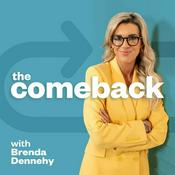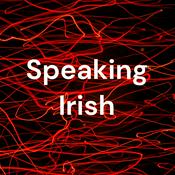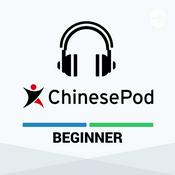22 episodes
- Activism has shaped the United States at every stage of its history, but not always in the ways we remember. In this lecture, Dr. Roy traces the evolution of American activism from labor movements and civil rights struggles to modern protest culture, examining how power actually responds to pressure. Dr. Roy explores when activism succeeds, when it fails, and why moral clarity alone has never been enough to force systemic change.
Takeaways:
Activism in the United States has historically emerged during moments of economic stress, war, and political exclusion.
Early American activism focused less on ideology and more on material conditions like wages, land, and survival.
Labor movements were among the most effective activist forces because they disrupted economic systems rather than symbols.
The Civil Rights Movement succeeded when moral pressure aligned with economic and geopolitical incentives.
Protest without leverage often results in suppression, co-optation, or symbolic concessions rather than real change.
Power rarely yields out of empathy alone and almost always responds to sustained disruption.
Media attention can amplify activism but can also dilute or redirect its goals.
Modern activism often prioritizes visibility over organization, reducing long-term effectiveness.
Institutions adapt by absorbing activist language while preserving underlying power structures.
Meaningful change requires strategy, coalition-building, and a clear understanding of how systems function.
Resources & References:
The American Labor Movement
The Pullman Strike
The Triangle Shirtwaist Factory Fire
The New Deal Labor Reforms
The Montgomery Bus Boycott
The Civil Rights Act of 1964
The Voting Rights Act of 1965
COINTELPRO Documents
The Antiwar Movement During Vietnam
Occupy Wall Street
The Black Lives Matter Movement
Beyond the podcast:
Want to watch this lecture? Check out the full video.
Want to support the show? Buy Dr. Roy a coffee! - Cyrus the Great ruled at a rare moment when empires could have chosen domination or cooperation. In this lecture, Dr. Roy traces the rise of the Persian Empire under Cyrus, exploring how conquest, restraint, and an unprecedented vision of tolerance reshaped the ancient world. Dr. Roy examines how Cyrus combined military brilliance with ethical governance, creating the first known model of an empire built on pluralism, legal limits, and respect for human dignity.
Takeaways
Cyrus emerged from the convergence of Iranian, Median, and Persian cultures during the collapse of older Near Eastern empires.
Horse warfare, mobility, and strategic restraint allowed Persian forces to defeat much larger armies.
Cyrus repeatedly chose incorporation over annihilation, turning conquered peoples into partners rather than subjects.
The defeat of Lydia demonstrated how innovation in currency, logistics, and battlefield tactics could overturn numerical advantage.
Babylon fell without a battle due to engineering ingenuity and restraint rather than mass violence.
The Cyrus Cylinder represents the first known declaration limiting state power over individuals.
Religious freedom under Cyrus went beyond tolerance to active protection and restoration of temples.
Slavery and human sacrifice were curtailed, redefining the moral boundaries of imperial authority.
The return of displaced peoples, including Jewish communities, marked a radical break from earlier imperial practices.
Cyrus’s empire functioned as a federation of cultures rather than a single imposed identity.
His death on campaign underscored the limits of even the most visionary leadership.
The Persian model influenced later ideas of rights, governance, and multicultural states.
Resources & References:
The Cyrus Cylinder
The History of Media
The Battle of Pteria
The Neo-Babylonian Empire
The Battle of Opis
The Persian Satrapy System
Beyond the podcast:
Want to watch this lecture? Check out the full video.
Want to support the show? Buy Dr. Roy a coffee!
This lecture was originally recorded at the Museum of the Future for the series Lessons from the Past (2025). - Khalid ibn al-Walid was one of the most formidable military commanders in history, operating at the precise moment when the Roman and Persian empires were exhausted, fragile, and unprepared for what came next. In this lecture, Dr. Roy Casagranda traces Khalid’s rise from opponent of early Islam to its most decisive general, placing his campaigns within the broader collapse of late antiquity. Dr. Roy explores how geography, disease, imperial overreach, and extraordinary tactical brilliance combined to reshape the Middle East and permanently alter world history.
Takeaways:
Late Roman and Persian empires were already in severe decline due to centuries of war, demographic collapse, malaria, and plague.
The Battle of Carrhae demonstrated a technological and tactical gap between Roman infantry and Persian cavalry that shaped centuries of conflict.
Khalid ibn al-Walid mastered mobility, deception, and timing rather than relying on brute force or numerical superiority.
His withdrawal at Mu’tah preserved an outnumbered Muslim force and established his reputation as a commander.
The unification of Arabia after 632 created the first centralized political authority the region had ever known.
Khalid’s campaigns in Iraq shattered Persian field armies that once dominated Rome.
Coordinated desert crossings and night navigation allowed Muslim forces to appear where imperial commanders least expected them.
At Yarmouk, Khalid exploited terrain, ravines, and cavalry to destroy a much larger Roman army.
The fall of Damascus and Jerusalem marked the permanent loss of Roman Syria.
The peaceful surrender of Jerusalem reflected a radically different model of conquest based on restraint, protection of holy sites, and coexistence.
Resources & References:
The Battle of Carrhae
The Ridda Wars
The Battle of Mu’tah
The Battle of the Chains
The Battle of Yarmouk
The Conquest of Damascus
Beyond the podcast:
Want to watch this lecture? Check out the full video.
Want to support the show? Buy Dr. Roy a coffee! - Venice was not founded in a moment, but across centuries of collapse, migration, and improvisation. In this lecture, Dr. Roy traces how the fall of the Western Roman Empire, repeated invasions, and the strange geography of the Venetian Lagoon produced one of the most durable republics in human history. Dr. Roy explores how refugees, merchants, and sailors gradually built a civilization in an impossible place, asking what kind of state Venice would become, and why it ultimately chose commerce, adaptability, and republican governance over monarchy or conquest.
Takeaways
Venice emerged gradually as waves of refugees fled invasions during the collapse of the Western Roman Empire.
Geography shaped everything. The lagoon offered protection, isolation, and opportunity, but at enormous cost.
Early Venetians were simultaneously merchants, nobles, and warriors, with no hard class boundaries between them.
Repeated sacks of Roman capitals pushed populations into the lagoon as an act of resistance against Germanic rule.
The survival of Roman authority in the lagoon made Venice the last western outpost of the Roman Empire.
Political violence marked early leadership, with assassinations, exile, and blinding shaping the Dogeship.
Venice constantly balanced three factions: pro-Roman, pro-Lombard, and independence movements.
The decision to move the capital to the Rialto was a defining moment that centralized power and defense.
Engineering the city itself was an unprecedented act of state-building, requiring massive labor and coordination.
Venice’s long survival came from asking fundamental questions about identity, power, commerce, and governance.
Resources & References:
Diocletian and the Tetrarchy
The Visigoth Sack of Rome
Attila the Hun
The Ostrogothic Kingdom of Italy
The First Doges of Venice
The Pax Nicephori (803)
Charlemagne and the Holy Roman Empire
The Venetian Lagoon
Beyond the podcast:
Want to watch this lecture? Check out the full video.
Want to support the show? Buy Dr. Roy a coffee!
This lecture was originally recorded at the Museum of the Future for the series Lessons from the Past (2025). - The Haitian Revolution was the most radical and unlikely uprising in the modern world. In this episode, Dr. Roy Casagranda traces the rise of Toussaint Louverture and the extraordinary transformation of Saint-Domingue from the richest slave colony on earth to a revolutionary force that challenged Europe’s greatest empires. Dr. Roy explores the brutality of the slave system, the brilliance of Toussaint’s leadership, and the imperial betrayals that shaped Haiti’s future.
Takeaways:
The Haitian Revolution emerged from one of the most brutal slave systems ever created, driven by European greed and racial hierarchy.
The colony of Saint-Domingue became immensely profitable through the exploitation of enslaved Africans, creating rigid class divisions among whites, free Blacks, mixed-race populations, and enslaved people.
Toussaint Louverture demonstrated extraordinary leadership defined by discipline, mercy, forgiveness, and long-term economic vision.
Toussaint consistently protected even former oppressors, believing stability required reconciliation rather than vengeance.
His decision to maintain plantations (without slavery) was an attempt to preserve economic viability and prevent imperial retaliation.
Napoleon’s racism, insecurity, and desire to restore slavery led to catastrophic betrayal, invasion, and genocide.
Haiti’s later struggles stem partly from France’s punitive actions, leadership fragmentation, and global isolation driven by fear of slave uprisings.
The Haitian Revolution remains one of history’s most extraordinary acts of liberation and one of its most sabotaged.
Resources & References:
The Haitian Declaration of Independence
The Code Noir
The French Revolution: The Declaration of the Rights of Man and of the Citizen
Treaty of Ryswick
Beyond the podcast:
Want to watch this lecture? Check out the full video.
Want to support the show? Buy Dr. Roy a coffee!
This lecture was originally recorded at the Museum of the Future for the series Lessons from the Past (2025).
More Education podcasts
Trending Education podcasts
About Dr. Roy Casagranda Podcast
The Dr. Roy Casagranda Podcast is dedicated to unerasing the erased peoples of the world. Too often, history is written by the powerful, leaving entire communities, cultures, and truths out of the dominant narrative. This show seeks to tell those stories.Through these conversations, Dr. Roy digs for the truth, weeds out misinformation, and challenges conventional wisdom. The conversations span politics, world history, philosophy, and culture, always with an eye toward justice and a deeper understanding of where we've been, where we are, and where we are heading. This is the official podcast of Dr. Roy Casagranda and Sekhmet Liminal Productions, FZCO.
Podcast websiteListen to Dr. Roy Casagranda Podcast, The Mel Robbins Podcast and many other podcasts from around the world with the radio.net app

Get the free radio.net app
- Stations and podcasts to bookmark
- Stream via Wi-Fi or Bluetooth
- Supports Carplay & Android Auto
- Many other app features
Get the free radio.net app
- Stations and podcasts to bookmark
- Stream via Wi-Fi or Bluetooth
- Supports Carplay & Android Auto
- Many other app features


Dr. Roy Casagranda Podcast
Scan code,
download the app,
start listening.
download the app,
start listening.






































